The Last of Us actor Troy Baker on joining the HBO series and his reaction to Pedro Pascal's Joel
Interview: GamesRadar+ and Total Film speaks to The Last of Us actor about playing a character he had forgotten about and his reaction to Pedro Pascal as Joel
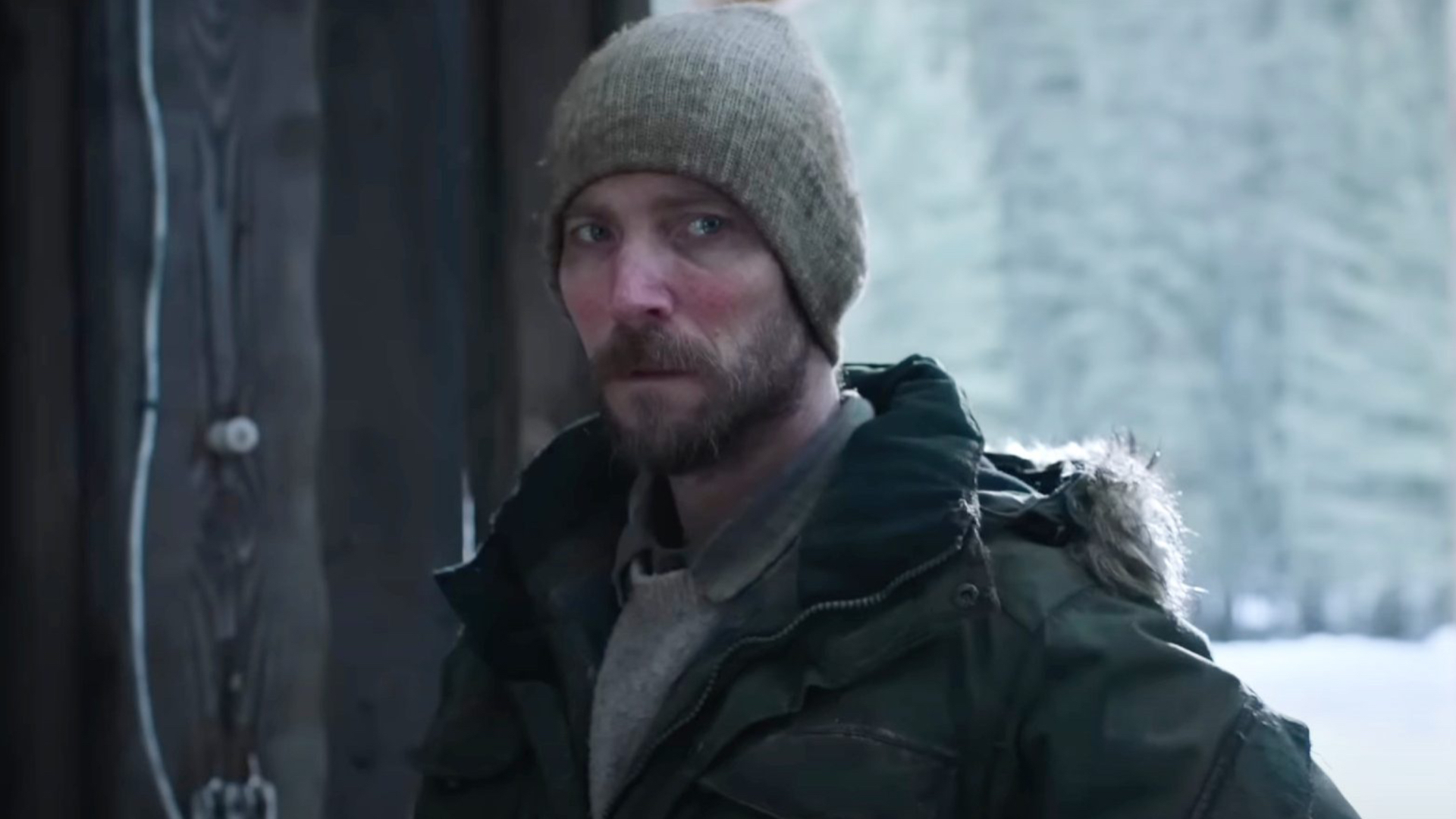
The Last of Us is already proving to be one of the best, if not the best, video game adaptations of all time. HBO and Craig Mazin have managed to take Neil Druckmann's emotional, apocalyptic journey about the lengths we go to protect the people we love and effortlessly transform it into something even bigger and for a much broader audience.
At the heart of the journey is Joel, the father figure to Ellie first portrayed in the games by Troy Baker and then in the HBO series by Pedro Pascal.
GamesRadar+ and Total Film recently sat down with Baker, who now plays David's right-hand man James in the HBO series, to talk turning an NPC into an important character, the show's success, and making one of the game's most dramatic scenes come to life.
Warning: Spoilers for The Last of Us episode 8 ahead!
Total Film: Can you tell me what it was like to be asked to join the show in a 'non-Joel' role? How did they pitch it to you?
Troy Baker: It was a surprise. I really wasn't anticipating it. I didn't expect it. It wasn't something where I was like, "You better find a role for me". If there was one, then great. If not, I'm happy to observe and cheer and my voice will be above the den of all those that I know will be supporting this show. And so Neil came to me and was like – I've been jokingly saying this all day – he said, "Hey man, I got a role for you." I'm like, "Oh dude, thank you."
And I thought it was looking to be like a clicker or something. And he goes, "I want you to play James." And I went, "Oh my God, thank you, man... Who's James again?" [laughs] And that's what this show is all about... we're gonna focus on Joel and Ellie – at the core of this story is about those two. This is a story about a love between a father and a daughter. But we have the opportunity without the encumbrances, if I may say, of what the game requires us to do, to explore other characters that either didn't exist in the game like we had with Kathleen and Perry, or do exist in the game, but in a different way like we do with James and David.
Sign up for the Total Film Newsletter
Bringing all the latest movie news, features, and reviews to your inbox
And the game serves a wonderful purpose. He's a great NPC that hits his beats, does exactly what he is supposed to do. What I love is that Neil and Craig saw fit to kind of pump up that character a little bit and give him more agency and more stake in this chapter of that story.
The challenge was, okay, how do I not play it like a villain or, or even worse, a henchman? Because that's kinda the purpose that he served in the game. So I immediately went to work and thought about who this guy is. Every character in this story somehow parallels or reflects Joel and Ellie. Everybody does. One of my favorite examples of this is: not only do we see this with Bill and Frank and how the two of them are so different, but so similar in that love that they have between each other. This is what we do: We take care of the people that matter to us. And now we have this beautiful scene in episode six where they go to Tommy's town and we see the differences between Joel and Tommy and how their lives have been different.
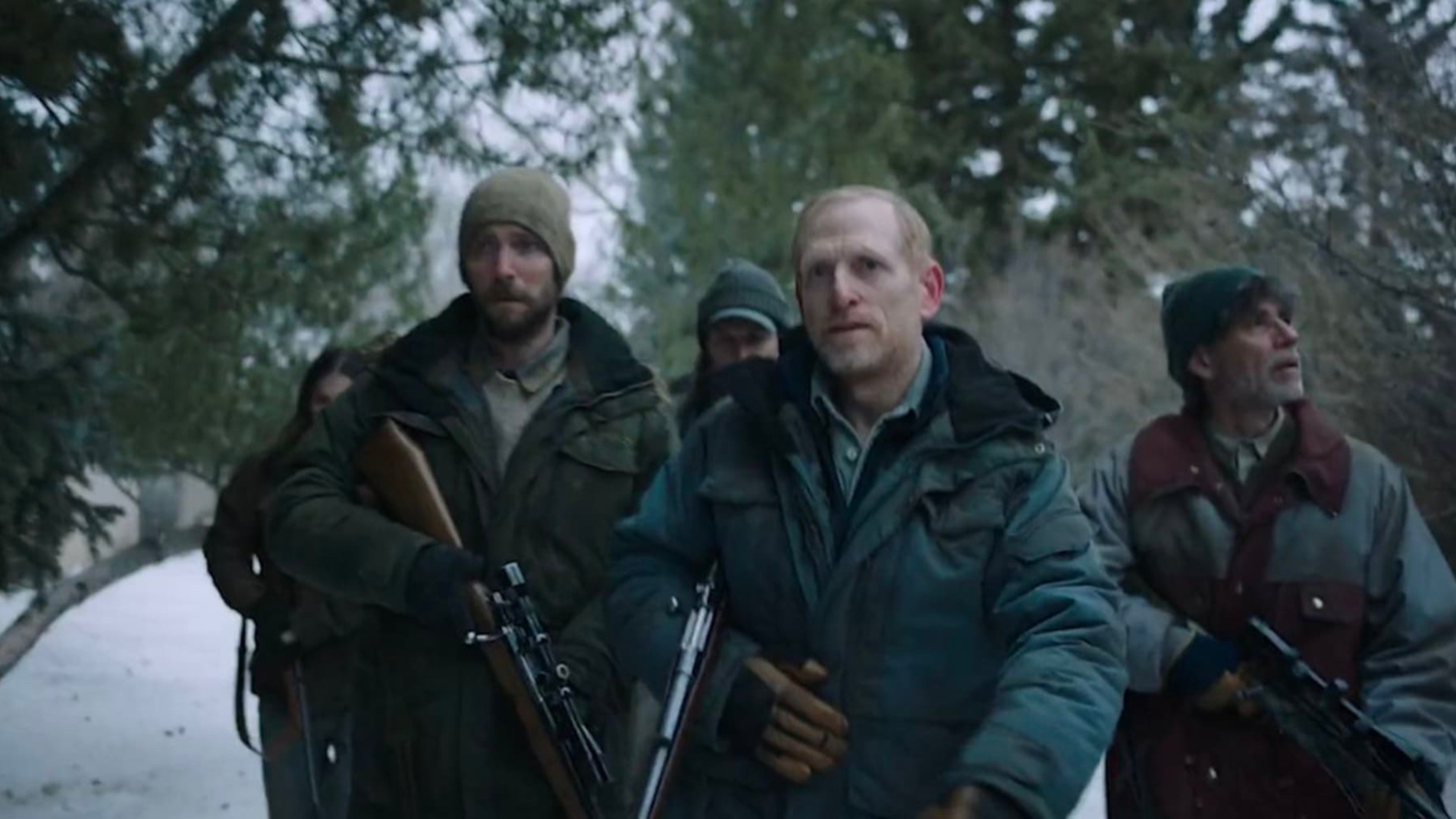
And then also in Maria, where with a single fact that Maria lost her son days after Sarah, there's two divergent paths. And Maria has been able to retain her parental role – like when she's cutting Ellie's hair – but Joel has abdicated his role as a father. So this kind of throws back to the very beginning of episode one, where you see Joel as a good guy, just a normal blue-collar, hardworking dude trying to make ends meet.
And that's where I see James. James wasn't born into this situation. This happened to him probably very early on as a teenager when he was maybe in law enforcement or he was gonna be a cop. He learned how to use a weapon, but he never thought it would be used for this. Which is why when we get to the moment where he'll shoot the horse to stop the girl, but he's not gonna shoot the girl, he can't bring himself to do it and it has nothing to do with David. His morality won't allow him to.
That's what this situation is doing: taking a good man and stripping away all the humanity that he's desperately clinging to. What's left is this shred of a human that ultimately will do the unconscionable.
What was it like adapting one of the most dramatic scenes in the game from a completely different side?
Oh man, to me, they're all dramatic. You know what I mean? Every episode has been chock full of key foundational moments either from the game or that are crucial to the story. There's so much about this that I look at and go, what a wonderful opportunity to take familiar scenes – and not just the horrific moments, but also the beautiful moments. You look at the Left Behind episode where we get to recreate that beautiful night in the mall, especially with the arcade. So there are these opportunities to make the light a little bit lighter and the dark, a little bit darker.
Our episode is no different: [David and his cult] literally put themselves in a position that is unsalvageable, all because winter is cruel. but these are not people that set out to be evil. So for me, the fun part of adapting some of those dramatic moments that we know from the game is fun because now it feels like I'm inside the game as opposed to just playing the game, even though I helped make those scenes as well.
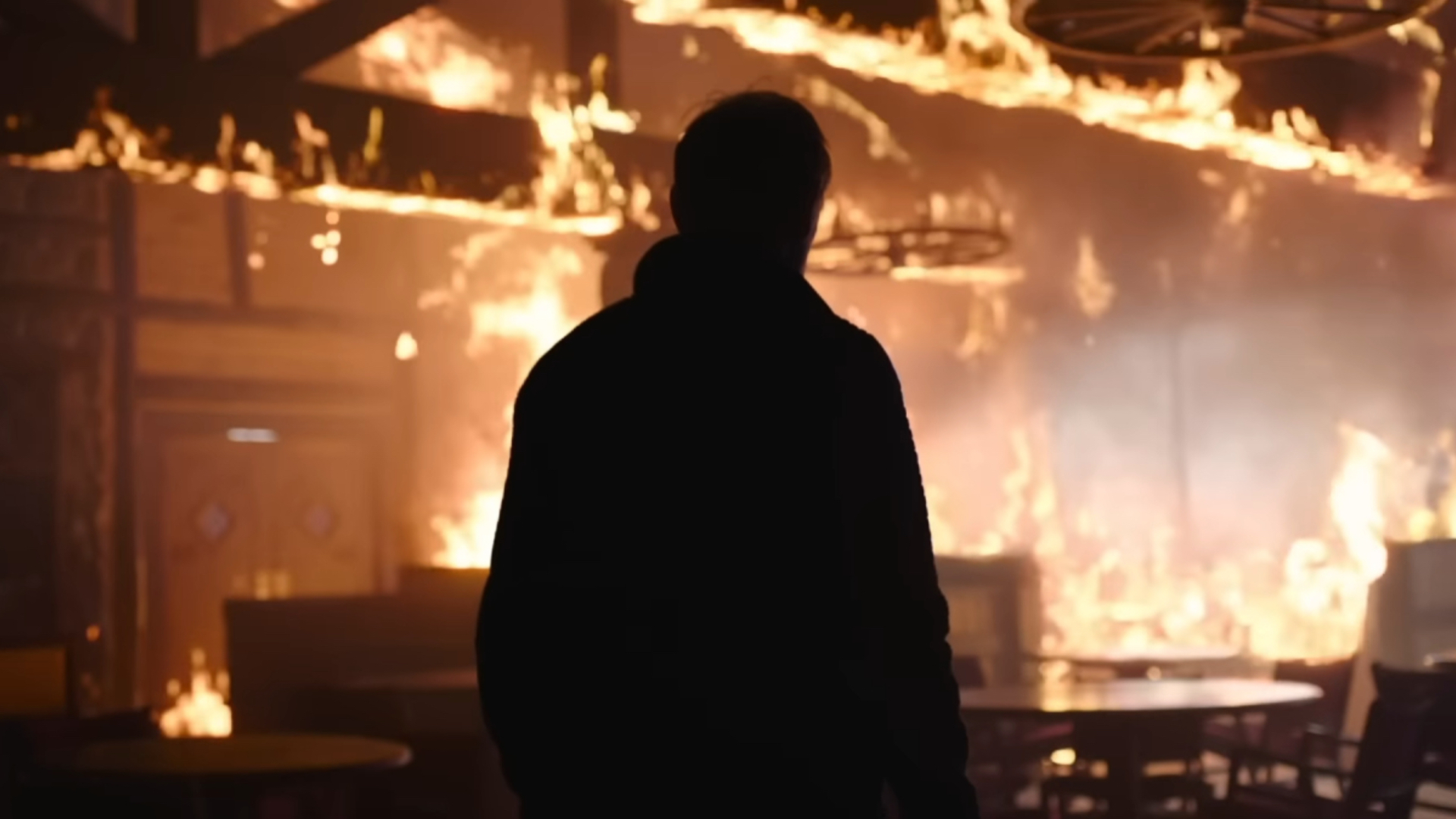
I remember when we shot that scene in the game and watching Ashley [Johnson] at the time do that move – which they rehearsed so many times. And that was with Reuben Langdon, one of our incredible stunt people. He's a great actor as well. There's also Nolan [North] who played David in the game. Ashley is reaching for the cleaver, which of course is just styrofoam, whatever. And then that kind of memory plays in my head as I'm standing there on set and there's a – they called it, I kid you not – a "bladder of blood" with a guy with an air pump that goes off as soon as that [cleaver] goes into [James's] neck, which is a magnet attached to my neck, so that when Bella hits me with the cleaver, it goes chink and stays there. The differences between those two versions of the scene are borderline comical.
I thought that was almost poetic almost to have you play that character that Ellie kills specifically.
There's a whole bunch of irony. That's why all the rumors, like, "he's gonna play David!" That's kitschy and dumb. I'm glad that they didn't make that choice. That would've been too much.
How do you feel about Pedro Pascal's take on Joel?
What I love is that you don't necessarily think Pedro Pascal, but the second that you mention the name, you go, 'Okay, okay, I can see that'. And then you see him as Joel, and then you watch him as Joel. And what it showed me was that thankfully this character is bigger than any one performance. If it had just been like, I'm the only one who could do it, then we didn't do a good enough job. This character needs to be bigger than one actor. And thankfully, not only Pedro, but Bella as well as - as well as the rest of our cast - shows that this story, these characters, are bigger than just one version.
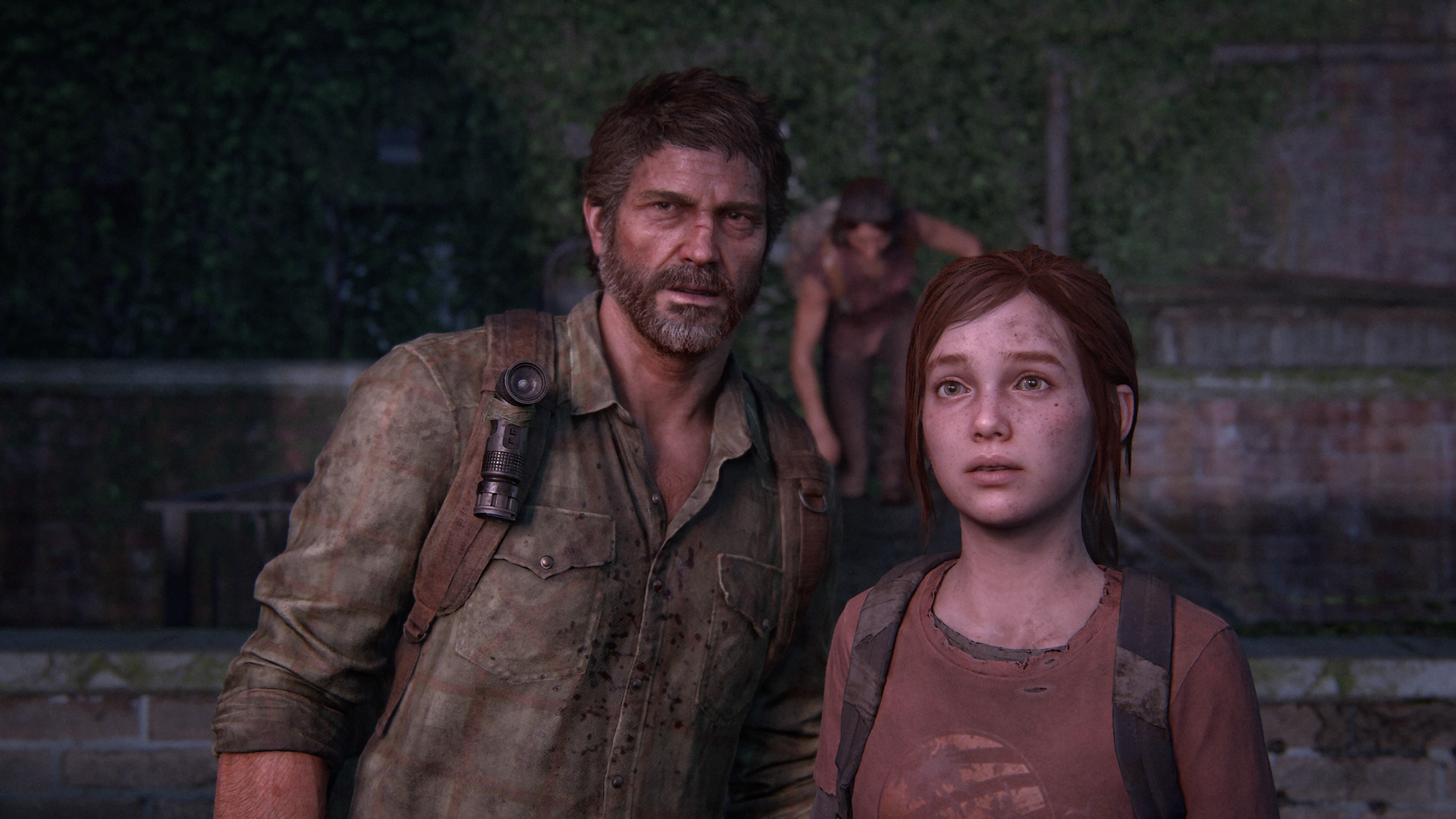
What are some of the biggest challenges or differences when it comes to 'video game acting' versus regular TV acting?
It’s a commerce of trust. If I'm on the set of The Last of Us game, there's a different set of resources that are given to me that are entrusted to me. I have a motion capture stage, I have a motion capture suit, and I have a camera that's on my head. I have rudimentary props, so there's a lot of imagination, but they're trusting me to use the resources that I have to be able to effectively bring that character to life and make you as the player feel something.
Hopefully this will kind of shine a light on the hard work that people in games do. But [The Last of Us TV Show] is not the template because this is such a remarkable thing. It's not just like, oh, we should now adapt games into shows. That is a reductive way to look at this because this has taken a remarkable story that presented itself in one medium that did phenomenally well. And then it's the attachment of that creator with another creator who's passionate about the game and trying to stay true to the original intent of the game in a different medium.
And then they're given a lot of money to do that. So it's all of those ingredients that are what make this thing possible. But at the end of the day, what Craig [Mazin] says is so great: we like to focus on what we're thinking and what we're feeling, and do that as honestly as possible. And he gave me a great note one time about writing. He said, don't try to be clever, just be honest. And that's what they're doing in every episode. We're just being honest. And I think that's why this story is resonating with a whole new audience.
The Last of Us is currently airing on HBO. Check out our The Last of Us release schedule to stay up to date on when you can watch the next episode.
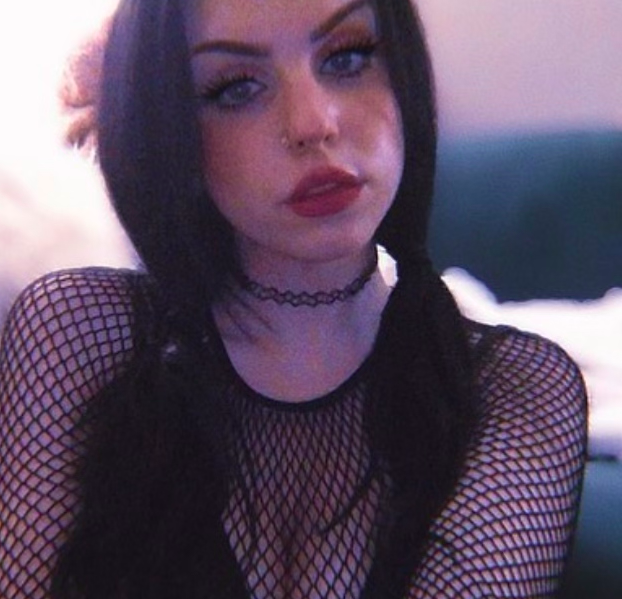
Lauren Milici is a Senior Entertainment Writer for GamesRadar+ currently based in the Midwest. She previously reported on breaking news for The Independent's Indy100 and created TV and film listicles for Ranker. Her work has been published in Fandom, Nerdist, Paste Magazine, Vulture, PopSugar, Fangoria, and more.


